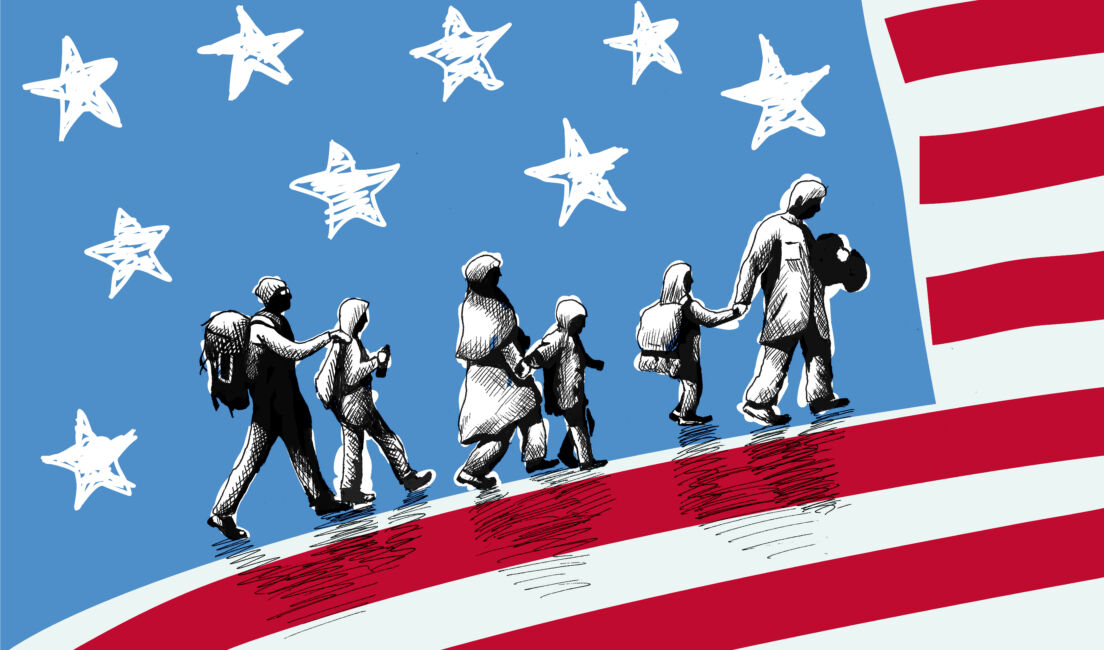Grandma Thompson, family trees, and 5 links worth your time
It’s complicated

My father’s mother was passionate about genealogy. She gave each of her grandchildren a book that traced our family all the way back to Plymouth Colony. She often reminded me that I was eligible for membership in the Daughters of the American Revolution. I nodded politely, but didn’t know what that meant.
My grandmother didn’t come from an old, important New England family. I knew her as Bette Thompson, but she was born Augusta Krampe. She and her siblings were second generation US citizens, after her grandparents emigrated from Germany. The Plymouth Colony ancestors? They were on my grandfather’s side.
My mom’s family, the Obermeiers, got here from Germany and Norway before the Krampes, but just barely.
Recent arrivals
Your family tree probably looks a lot like mine, and you can count plenty of immigrants among your not-too-distant relatives.
Most of us can’t trace our ancestry to Plymouth Colony, which is exactly why Augusta/Bette, her own family having so recently arrived, made such a big deal out of it. But even the Thomsons (as they were then) were immigrants when they arrived in not-yet-Massachusetts in the 1600s.
I never met any of those people, but I know they took huge risks and faced challenges I can’t begin to understand, all because they thought their lives would be better here than the place they left.
I also haven’t met any of the 178,622 people who tried to cross our southern border last month, but they undoubtedly felt the same way my ancestors did: here is better than the place they left.
The facts about immigration
Though they shared a desire for a better life, there’s a difference between my ancestors and many of those who tried to migrate in April. My relatives came here legally because immigration policy was very different then (or, in the case of the Thomsons, didn’t exist). As this week’s podcast guest, Alex Nowrasteh, told me, until the late 19th century US policy on immigration was open and unrestrictive.
Talking to Alex, an expert on immigration, I learned a lot. You won’t be surprised to hear that immigration is a complicated subject, with a complicated history, and our attitudes about it are equally complicated.
Recent polling shows that, regardless of your political affiliation, you’re probably unhappy about how we’re handling immigration.
Room to learn
Alex is an expert and has spent his entire career studying immigration. Unsurprisingly, he has very strong opinions about it. But what might surprise you is that Alex always listens to people who disagree with him and tries to learn from them. When he wrote his most recent book, he and his co-author started with the assumption that they might be wrong.
If Alex Nowrasteh is still learning from people who disagree with him and can admit he might be wrong, I can do the same in conversations about immigration. This week, the podcast and our links highlight recent polling on attitudes about immigration, Alex’s research, and the thoughts of a former Central American president who knows firsthand how complicated the situation is.
I hope you’ll consider starting a conversation about immigration this week and listen carefully to someone who disagrees with you!
5 links worth your time
- No one is happy with the way the government is managing the border crisis
- Americans have a jumbled mess of feelings about immigration
- A majority of first- and second-generation immigrants came to America for economic opportunities, and other recent national survey findings
- Here are some of the top myths about immigration
- Money alone can’t fix Central America – or stop migration to America
Photo by Marcos Silva on Adobe Stock